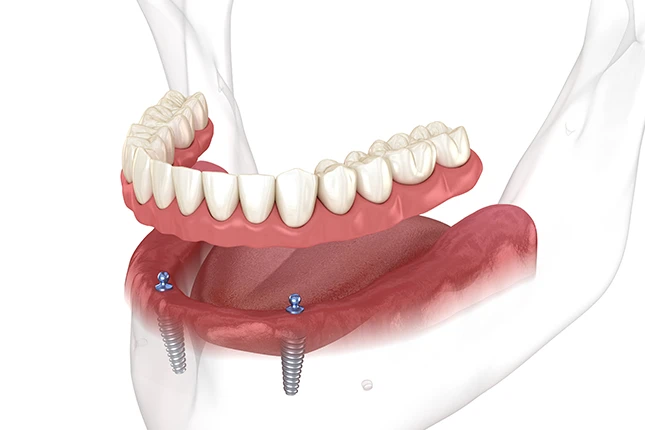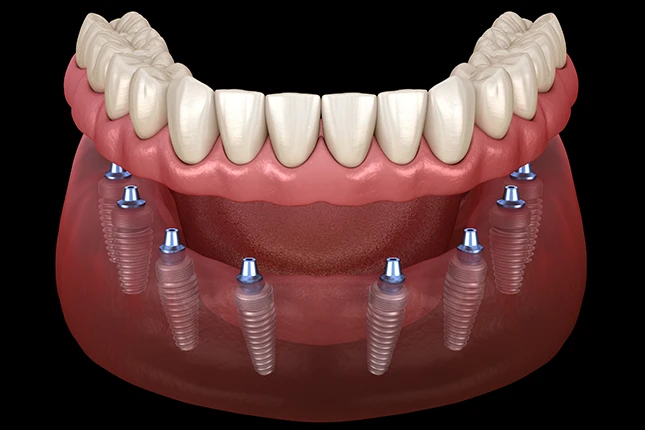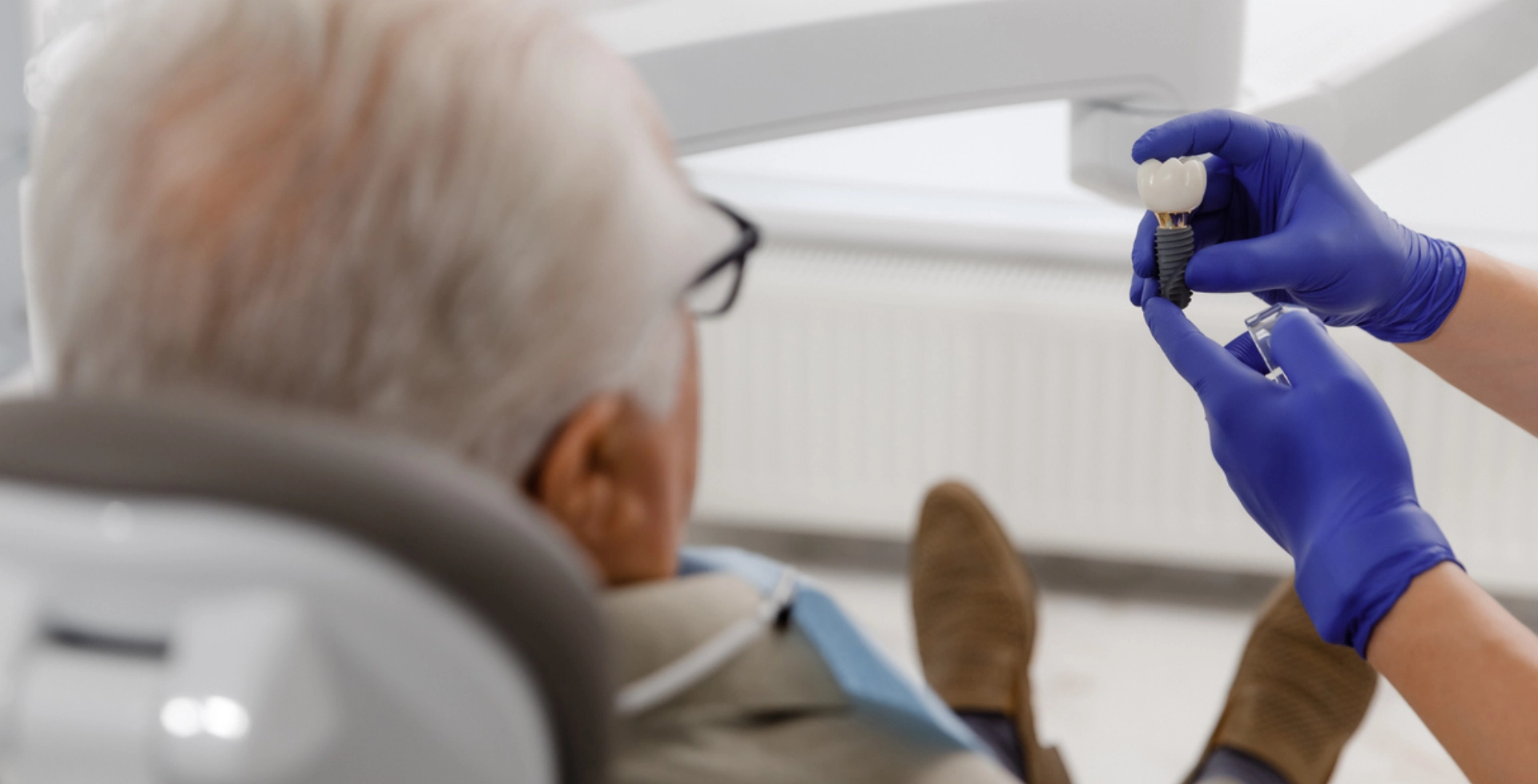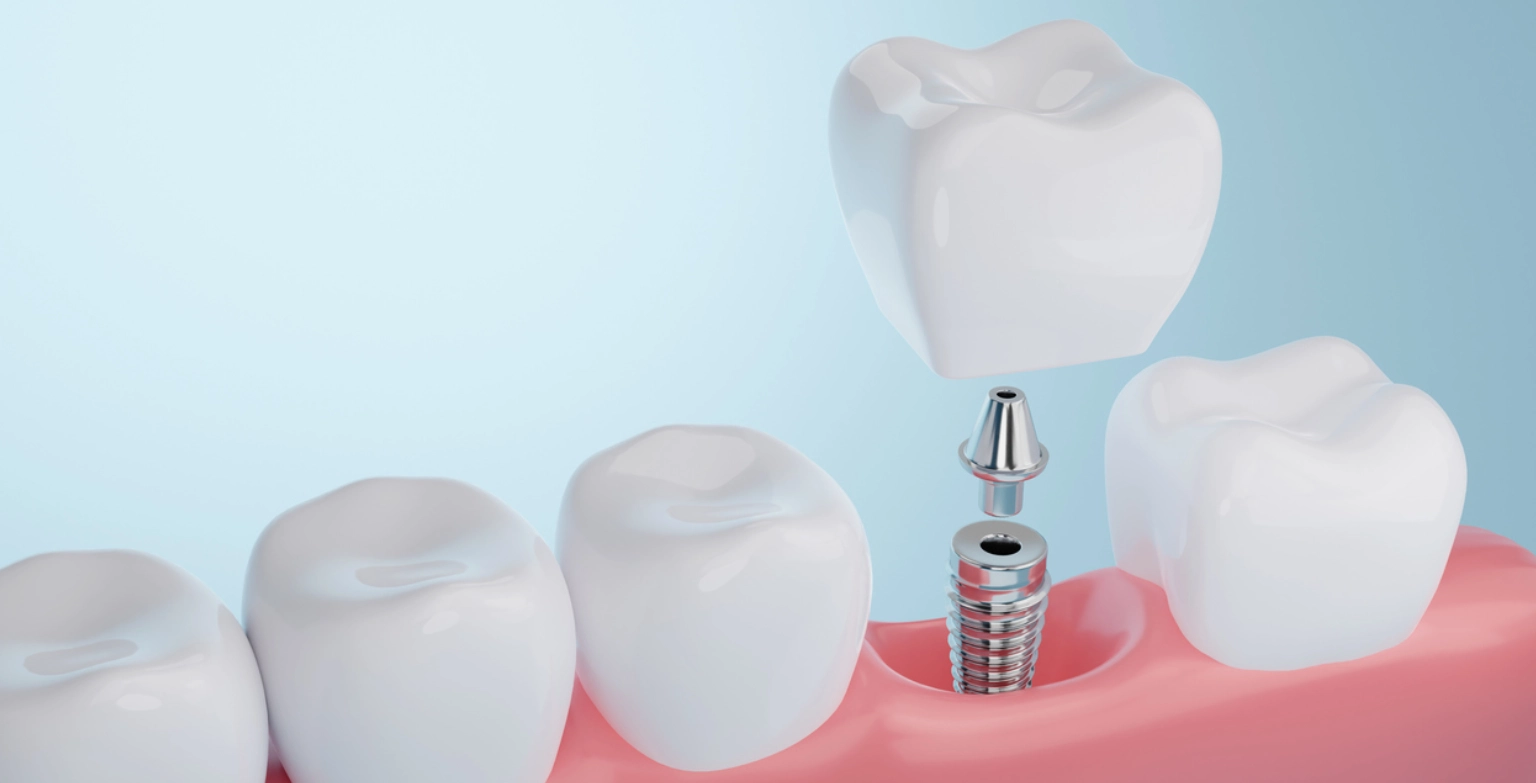What are the three types of dentures?

Dentures have become a common way to hide your missing teeth. Be it full replacement of teeth or partial, we have all types of dentures available at Dr. Gary Login to satisfy your needs. There are around 90% of people in the United States who wear dentures to fulfill the needs of their natural teeth. So, what are the three types of dentures? And how do you decide which one to choose from? Let us try to answer these questions in the blog.
What are Dentures?
Dentures are effective, natural-looking alternative for your missing teeth. These artificial teeth help you speak and chew food normally, like you do with your natural teeth.
An experienced dental professional like Dr. Gary Login and his team in Brookline can help you determine the type of dentures you need. They are experts in helping you restore the normal function of your teeth even after losing them.

Factors Influencing the Type of Dentures You Need
The need for the right type of dentures depends on the following:
- The number of missing teeth
- Overall health
- Location of your natural teeth
- Age
- Lifestyle
- Gum health
Three Types of Dentures
The 3 types of dentures are explained below:
Partial Dentures
Partial dentures are a good way to replace the missing teeth if you already have some natural teeth left to support them. These dentures use the remaining teeth to hold the dentures in the right place. These dentures help restore the normal appearance and function of your mouth. They prevent the remaining teeth from moving into the gaps caused by the missing teeth. These false teeth match the color and shape of your natural teeth to create a natural look. Partial dentures have a metal framework attached to them to fit around the natural teeth. But there is a catch: your gums and natural teeth should be healthy enough to support partial dentures. For eligible candidates, it is a non-surgical and cost-effective way to replace the missing teeth.
Full Dentures
Full dentures are also known as Complete dentures. They need a full arch of porcelain or acrylic artificial teeth held by a metal or acrylic base. Full dentures can replace the entire lower and upper set of missing teeth. An upper denture covers the roof of your mouth, called the palate, and creates a suction effect that helps keep the denture in place. At the same time, the lower denture fits over the gum ridge to provide space for the tongue.
Full dentures are customized according to your mouth structure to avoid unnecessary slipping or a missed fit of dentures. It also prevents food particles from accumulating under the denture and causing discomfort. You can use denture powder or gel to work like an adhesive and prevent the slipping and shifting of dentures.
Implant Supported Dentures

Implant-supported dentures offer a more permanent solution than full or partial dentures. These dentures cannot be removed without professional help. These dentures include crowns that snap onto four titanium dental implants, metal screws that are placed into the upper or lower gum line. Then, after a wait of three to four months, the bone grows and fuses the post to the jaw. The implant-supported dentures work like your missing tooth roots. They provide natural stimulation to keep your jawbone healthy and in place.
One benefit of getting implant-supported dentures is that they do not move from their place. This provides a more comfortable and stable fit than the other two dentures.
It is important to have a healthy jawbone to be an ideal candidate, or you will require bone grafting to provide support.
A Comprehensive Comparison of Three Types Of Dentures
Feature/Type of Denture | Partial Dentures | Full Dentures | Implant-Supported Dentures |
Purpose | Replace some missing teeth | Replace all missing teeth in the upper or lower jaw | Replace all or some missing teeth with enhanced stability |
Fit | Attaches to remaining natural teeth | Fits over gums, the upper covers the palate, lower shaped like a horseshoe | Anchored to dental implants in the jawbone |
Stability | Moderate stability can be removable | Moderate stability can be removable | High stability means less movement |
Material | Acrylic base with metal clasps or framework | The acrylic base can have a resin or metal base | Acrylic or porcelain teeth attached to implants |
Comfort | Generally comfortable, may feel bulkier | Generally comfortable, may require adjustments | Feels more like natural teeth, highly comfortable |
Durability | Moderately durable, needs periodic adjustments | Durable but may need relining or replacement over time | Highly durable, long-lasting with proper care |
Jawbone Health | Does not prevent jawbone loss | Does not prevent jawbone loss | Prevents jawbone loss by stimulating the bone |
Aesthetic Appearance | Natural-looking, fills in gaps | Improves facial aesthetics by providing a full set of teeth | Most natural appearance, similar to natural teeth |
Cost | Lower cost compared to other types | Moderate cost | Higher cost due to surgical procedures and implants |
Maintenance | Easy to remove for cleaning | Easy to remove for cleaning | Requires good oral hygiene, professional cleaning |
Adjustment Period | Short adjustment period | Short adjustment period | Longer adjustment period due to surgical process |
Eligibility | Suitable for individuals with some natural teeth remaining | Suitable for individuals with all teeth missing | Suitable for individuals with sufficient jawbone density |
Conclusion
All three types of dentures provide you with a solution to replace your missing teeth. Each type has a unique benefit and caters to different situations, be it replacing a few missing teeth or restoring a full set of teeth with improved stability. A dental professional like Dr. Gary Login can help you figure out the most suitable option to achieve a confident, functional, and natural-looking smile.
If you are considering getting dentures and need expert advice, schedule a consultation with Dr. Gary login on Harvard Street in Brookline, MA. New patients can call us at (617) 982-2980, while all other callers can reach out to us at (617) 277-0807. Take the first step to restore your precious smile and improve the quality of your life today!
FAQ
How do full dentures differ from partial dentures?
Full dentures replace all missing teeth in the upper or lower jaw, while partial dentures only replace some teeth and are anchored to existing natural teeth.
What are the benefits of implant-supported dentures?
Implant-supported dentures offer stability and comfort, prevent jawbone loss, and provide a more natural look and feel compared to traditional dentures.
What type of dentures are the best?
If you are looking for a more stable option then, implant-supported dentures are the right choice for you.

If you are looking for a dentist in Brookline, MA, schedule your consultation with the team at Brookline Smile Artists. We offer Cosmetic and Restorative Dentistry. We are located at 209 Harvard Street, Suite 402 in Brookline. Our office hours are Monday through Thursday from 7:30 AM to 5:30 PM and Friday from 8:00 AM to 2:00 PM.

One of the top rated dentists in Brookline, MA



